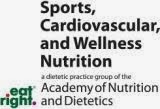DISCOVER YOUR WHY
·
How much?
·
How?
·
When?
Saying
that you want to lose weight is too general.
Saying, "I want to lose 1
pound over the next week by exercising 30 minutes per day and replacing
my late night ice cream habit with fruit on Monday, Wednesday, and Friday
is a S.M.A.R.T. goal. It tells me how much weight: we can measure 1 pound. It
tells me how: we specifically said by exercising 30 minutes per day
and eating fruit instead of ice cream on certain days. And it tells me how
long: over the next week. As long as cutting down on a couple of hundred
calories per day and exercise 30 minutes per day is do-able, then this goal is
realistic and attainable.
But, maybe
that's not enough?
Maybe setting a S.M.A.R.T.
goal isn't enough. What if setting a S.M.A.R.T. goal was the second
step in sharpening your focus, bolstering your self-esteem, and increasing your
commitment? What if you made discovering your "WHY" your first
step?
Why do
you want to lose weight?
Heck, why
do you want to do anything?
It doesn't have to be weight
loss. It can be your why to quit smoking, drink less, get a better job,
save money, earn "X" amount of dollars per year, exercise
more, run a marathon, finish college - you get the point. With
any goal, creating strategy by setting S.M.A.R.T. goals is great, but your
"Why" is what's going to motivate you. Your "Why" is going
to get you to that smoking cessation class, buy more fruit and less ice cream,
plan a budget, take a webinar or class to improve your work strategies, get you
out of bed 30 minutes earlier each day so you can fit in your exercise, that
webinar, or read the latest news in your industry. And if you think about it -
your "Why" is also going to motivate you to get to bed 30 minutes
sooner, so you're not sleep deprived, maybe even get you eating dinner at 7PM,
instead of 8PM or 9PM, so you don't feel like you're stuffed when you go
to bed. In other words - your "Why" infiltrates every decision you
make throughout the day.
Your
"Why" is yours, and yours alone.
Want to look better? Feel
better? Avoid illness? Do you want to feel successful? In control? More
love-able? Do you want to prove to yourself, your partner, spouse, your
children, your friends, neighbors, and/or co-workers that you can do it?
Maybe you just want to shut up that small, irritating voice of self-doubt in
your head once and for all!
Whatever
your "Why", it gives your goals credibility, meaning, and passion.
It's what energizes and
motivates you. It helps you focus on what's really important to you. Your
"Why" is the basis for all creativity and strategy in your life.
It's the basis for balance, peace, and happiness in your life.
You don't
think you have a "WHY"?
Everyone has a "Why".
It may not seem obvious, but everything you do, no matter how simple, has
several reasons behind it. If your "Why" isn't jumping out at
you, take a few moments, sit quietly, and think. Start with a blank piece
of paper; start with journaling - take just a few moments each day, with your
morning coffee, tea, or water, before your partner, spouse, or kids get up, or
before you go to bed - take some time and write down thoughts that come to mind
about:
·
What's important to you?
·
What makes you happy?
·
What makes you feel love, not fear?
·
What do you love to do?
·
What gets you riled, excited, energized?
·
What makes you feel great about yourself?
·
What motivates, or inspires you?
·
What do you connect to emotionally?
This is about what you feel. No
one needs to see this, but you - so be honest with yourself. After
you've compiled this list, take some time to look at it. Think about what
sticks out. And ask yourself "Why"? Ask yourself why you
answered these questions the way you did. Take some time to really think about why you answered these
questions the way you did. Discovering your "Why" will empower
you. It is your focus on what you want to see in your life. And if you can see
it, you can believe it.
Your
"Why" propels you forward.
It
forces you to grow, to challenge your fears, to set new goals.
Your
"Why" is the power you need to reach your S.M.A.R.T. goals.
You can
achieve anything you want.
The
power is in your "Why".
Don't
wait.
Discover
your "Why" today!
About the Author
Elizabeth Candela is a graduate of Rutgers’ School of Environmental and Biological Sciences with a Bachelor of Science degree in Environmental Science. Her studies at Rutgers led Elizabeth into employee health and safety, and she worked several years as a Safety Engineer in Risk Management. In 2007, after achieving a Master of Art from Montclair State University, Elizabeth taught high school Biology, Environmental Science and Physics. Then, in 2009, Elizabeth developed a portable core fitness device, and since has secured a United States Patent. The development of this device drew her into the Exercise and Nutrition field, so she left the teaching profession to pursue postgraduate courses in Nutrition and Exercise Physiology. Since then, Elizabeth has achieved her New Jersey Registered Dietitian Nutritionist Certification, as well as her American College of Sports Medicine Exercise Physiology Certification. By maximizing her training and fitness through sound nutritional principles, Elizabeth continues to challenge herself physically and nutritionally through her commitment to run a half marathon in every USA state, and six World Marathon Majors.
Checkout My Website: https://www.beyondnutrition-
Follow Me on Twitter: https://twitter.com/


